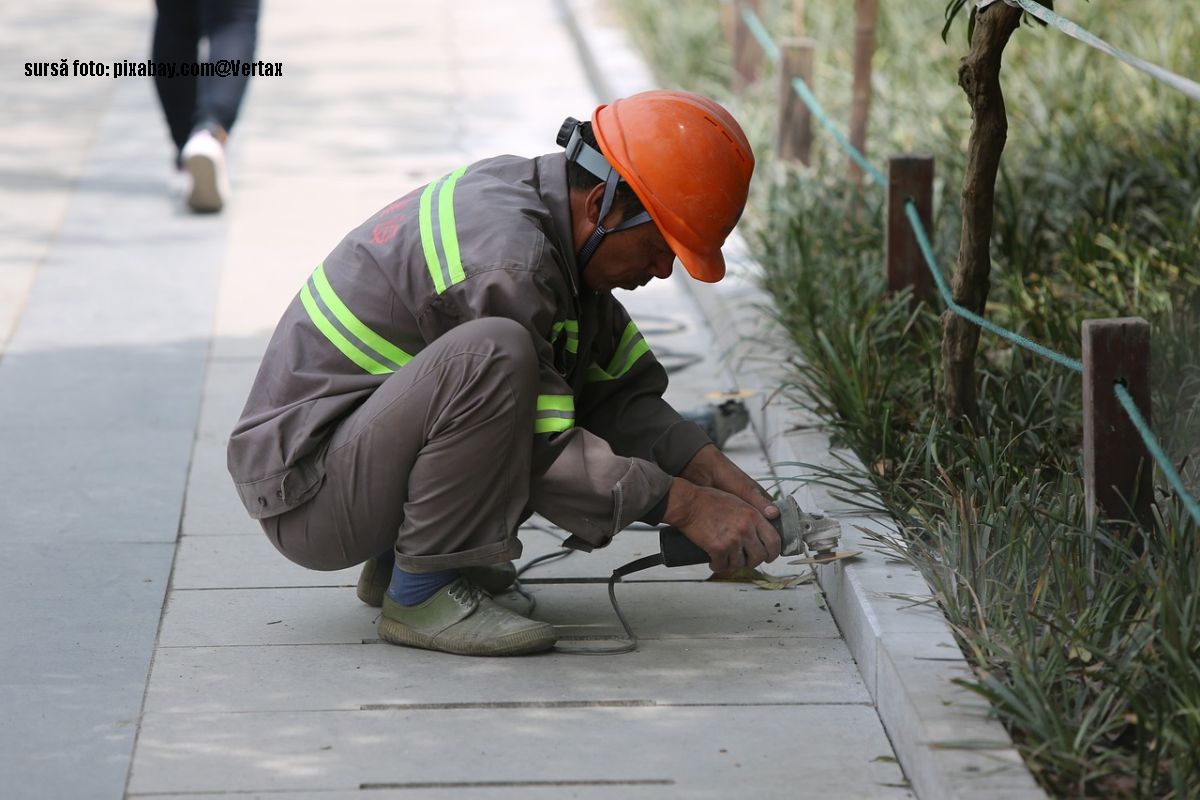Food loss, an issue in Romania
While some parts of the world are confronted with a severe lack of food, in many other countries tons of food products are discarded every year.

Christine Leșcu, 10.08.2016, 13:00
While some parts of the world are confronted with a severe lack of food, in many other countries tons of food products are discarded every year. And we are not talking about small amounts. According to the United Nations’ Food and Agriculture Organization (FAO) one third of the food produced for human consumption gets lost every year, and this is an amount 3 times bigger than what is necessary to feed all people on earth.
In the European Union food loss exceeds 89 million tons, 2.5% of this loss being reported in Romania alone, according to FAO statistics made public between 2006 and 2012. No studies have been conducted in Romania on this matter since 2012, so, at present we do not know how much and what type of food Romanians throw away.
The aforementioned study itself was made based on estimates by the European Commission, taking the situation in the Nordic countries as a model. However, even estimated figures are staggering. The wastage level is 49% for households, 37% for the food industry, 7% for the retail industry, 5% for the public food sector and 2% for the agricultural sector. So what is to be done to decrease these figures?
In 2013 a working group was set up within the Romanian Agriculture Ministry with the task of drawing up a National Strategy for Fighting Food Loss. After 3 years nothing was done in this regard. There were also some parliamentary initiatives, one of which was green lighted by the Senate at the end of last year.
Cosmin Zaharia, an editor with the “Green Report” online magazine has details: “There have been two legislative initiatives in this respect in Romania’s Parliament, one proposed by the National Union for the Progress of Romania and another one by the National Liberal Party. The first one, which was passed by the Senate, obliges supermarkets to donate to NGOs the food nearing its expiration date. However, there are no provisions as to the way in which distribution from retailers to the people in need should be made. It is expensive for the supermarkets to also arrange for the transport and distribution and to also make sure the food is properly stored.”
Until clear-cut legislation is passed in this respect, it is up to the private sector and charity organizations to curb food loss. The SOMARO community shop for example offers food and non-food products at very small prices for the needy. As far as food products are concerned, they meet all quality and safety standards but they are close to the expiration date or the season when they are usually sold is over, such as the Santa-shaped chocolate usually sold on Christmas.
The shop manager is Simon Suitner, an Austrian who settled in Romania six years ago: “We use our own car to collect the products and then we take them to special shops in Bucharest and Sibiu. In Bucharest almost 700 families benefit from these products while in Sibiu 250. In these special shops, customers have access based on an ID card issued by the Social Assistance Authority in the two cities. The products are sold at discounts of 80% up to 90%. We have chosen to sell them, even at a very small price, so as to afford paying our employees by ourselves. Moreover, our customers know that they are not begging, this being a dignified way for them to get the products they need at a very small price. Among our customers are people with various social statuses, and what they have in common is a maximum income of 500 lei per month for each family member. Most of them, however, don’t even have this amount. There are families in which one or several members have disabilities, chronic diseases or families with many children.”
The products offered to these people, products which otherwise would have gone to waste, are brought to SOMARO, based on a collaboration contract with producers and distributors. Simon Suitner does not collaborate much with big retailers.
Next he will tell us why: “Unfortunately, it is difficult to discuss with retailers about the food waste issue. It’s not my intention to offend anyone, but I would like to tell you about the Austrian community shops where there is the following moral dilemma: if I have a product that meets all safety norms but which does not sell, is it moral to let it turn into waste when I know there are people who can’t afford buying the food they need? Unfortunately people in Romania do not ask themselves this question very often.”
But Romania does have a law under which retailers get a 20% tax reduction if they make contributions to charities. Unfortunately, each time companies wait for a specific decision by Parliament or Government to take any action in this respect. Meanwhile, Romanians throw away about 25% of their cooked food, 21% of the bread and bakery products they buy, 19% of vegetables and 16% of fruits. The reasons for this waste are: quick deterioration in the case of 26% of the products, the wrong estimation of the amount of food products needed to prepare a meal which occurs in 21% of the cases, and excessive shopping accounting for 14% of the cases. Until food loss prevention laws are passed, raising awareness over this issue is one way of fighting food waste.
But that is not enough, says journalist Cosmin Zaharia: “People should also be educated as to how products are tagged. And I refer to the expiration date. Some food products can be eaten even after their expiration date, such as pasteurized food, and canned fruits and vegetables. They can still be eaten shortly after they expire. But educating people is useless unless you also offer them the means to fight food loss.”
Recently the NGOs’ initiative of stopping food loss has been joined by famous chefs, who, through their personal example, show people how to prepare meals without wasting the food products used.






























